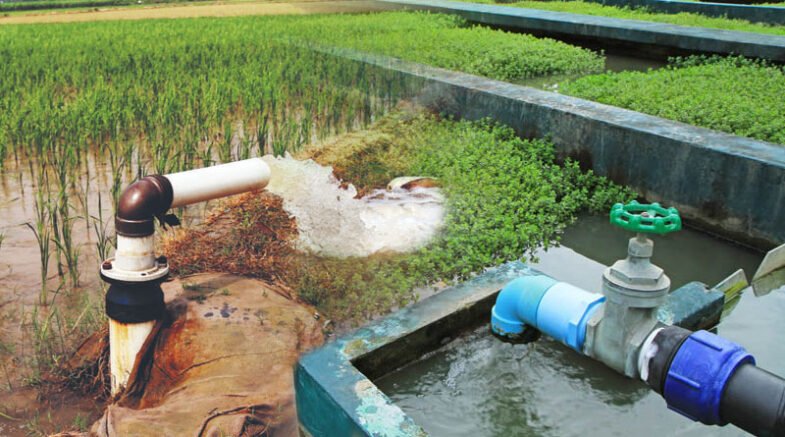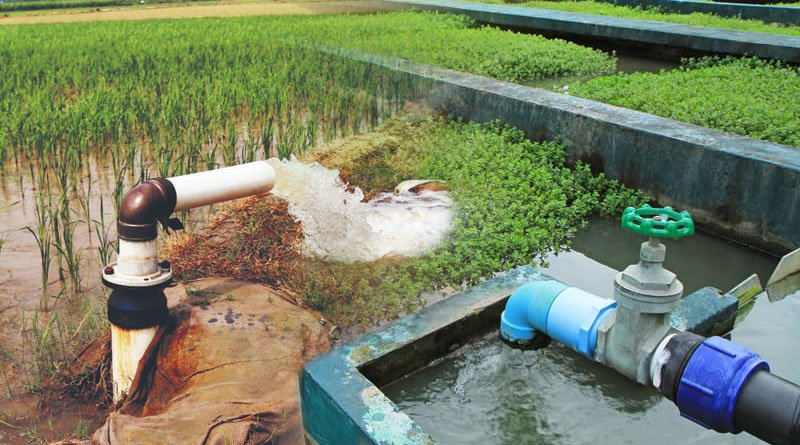This practise is becoming more popular around the world as a result of the need to increase food production and the world’s growing water scarcity.

Experts at an international debate at the University of Agriculture Faisalabad advocated for the use of treated wastewater technology in agriculture to combat irrigation water shortages and droughts.
This practise is becoming more popular around the world as a result of the need to increase food production and the world’s growing water scarcity.
They spoke at an international seminar on “Agroecological and social interventions of reused water irrigation in a gastroenteritis context,” co-hosted by the University of Agriculture Faisalabad‘s Departments of Agronomy and Rural Sociology. Prof. Dr. Iqrar Ahmad Khan, Vice Chancellor of the University of Alaska Fairbanks, presided over the inaugural session.
The discussions and presentations covered a wide range of topics, including the benefits and risks of reused water irrigation, the latest technologies and best practises for treatment and management, and the social and economic impacts on local communities of pathogens and heavy metals that can cause gastroenteritis.
According to UAF Vice Chancellor Prof. Dr. Iqrar Ahmad Khan, the country’s per capita water availability has decreased from 5000 cubic metres per year to 900 cubic metres, placing the country on the list of “water scarce” countries. He stated that we must rationalise our use of every drop of water for future generations.
Excessive groundwater abstraction by pumps is lowering groundwater levels and deteriorating water quality. He said that the adaptation of treated wastewater is an alternative way to do agriculture. Interventions like biochar have proven very successful.
Foreign delegation Prof Dr Lyla Mehta from Institute of development studies, UK, Dr. Ruben Sakrabani Associate Professor from Cranfield University, UK, Prof Elizabeth Wellington from Warwick University, UK and Prof Christopher Quince while sharing their experiences from different regions, said cross-cultural exchange of knowledge and ideas were invaluable, as it helped to broaden perspectives and deepen understanding of the complex issues resulting in gastroenteritis by cultivating with reused water.
Dr. Izhar Ahmad Khan, Chairman of the Department of Rural Sociology at UAF, stressed the importance of raising public awareness about water conservation.
Dr. Abdul Khaliq, Chairman of the Department of Agronomy, stated that they were conducting all possible research and outreach efforts to increase productivity per acre by effectively utilizing available natural resources and developing targeted interventions such as biochar deployment with multiple benefits.
Dr. Fahd Rasul, Associate Professor of Agronomy at UAF and Principal Investigator of the UKRI project, stated that promoting biochar would aid in the fight against soil, water, and climate challenges. Prof. Dr. Syed Aftab Wajid, Dr. Hassan Munir Bajwa (Co-Organizer), Dr. Sardar Alam, Dr. Shahbaz, Dr. Aziz ur Rehman, and Dr. Ghulam Mustafa, among others, elaborated on their work.
The delegation compared the effect and uptake of heavy metals and pathogens that can cause gastroenteritis in vegetables grown with canal, treated waste water technology by biochar, and directly by wastewater.
On the occasion, the website of Project WWW.GASTROPAK.PK was launched and a “National Center of Biochar” was inaugurated at UAF.
